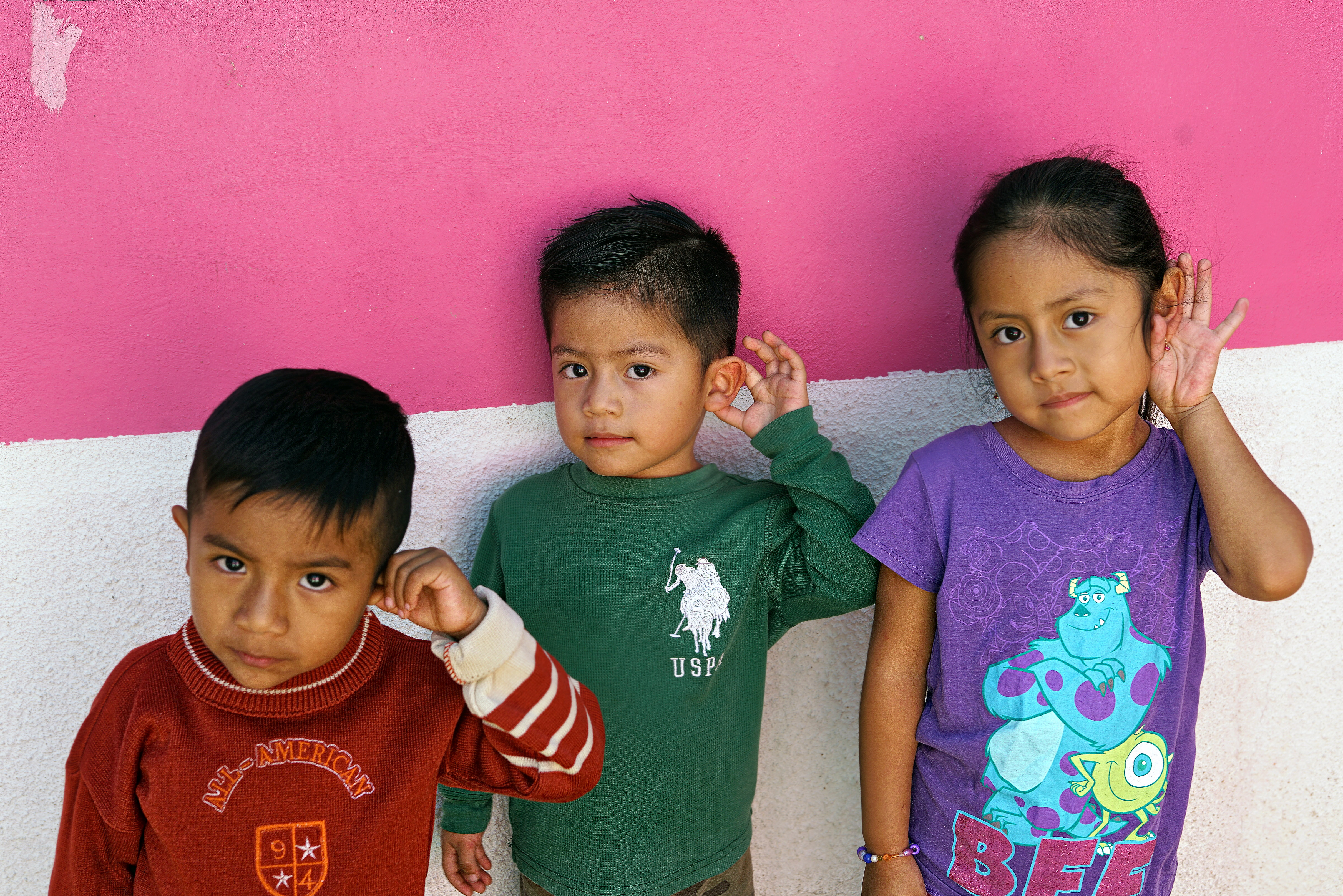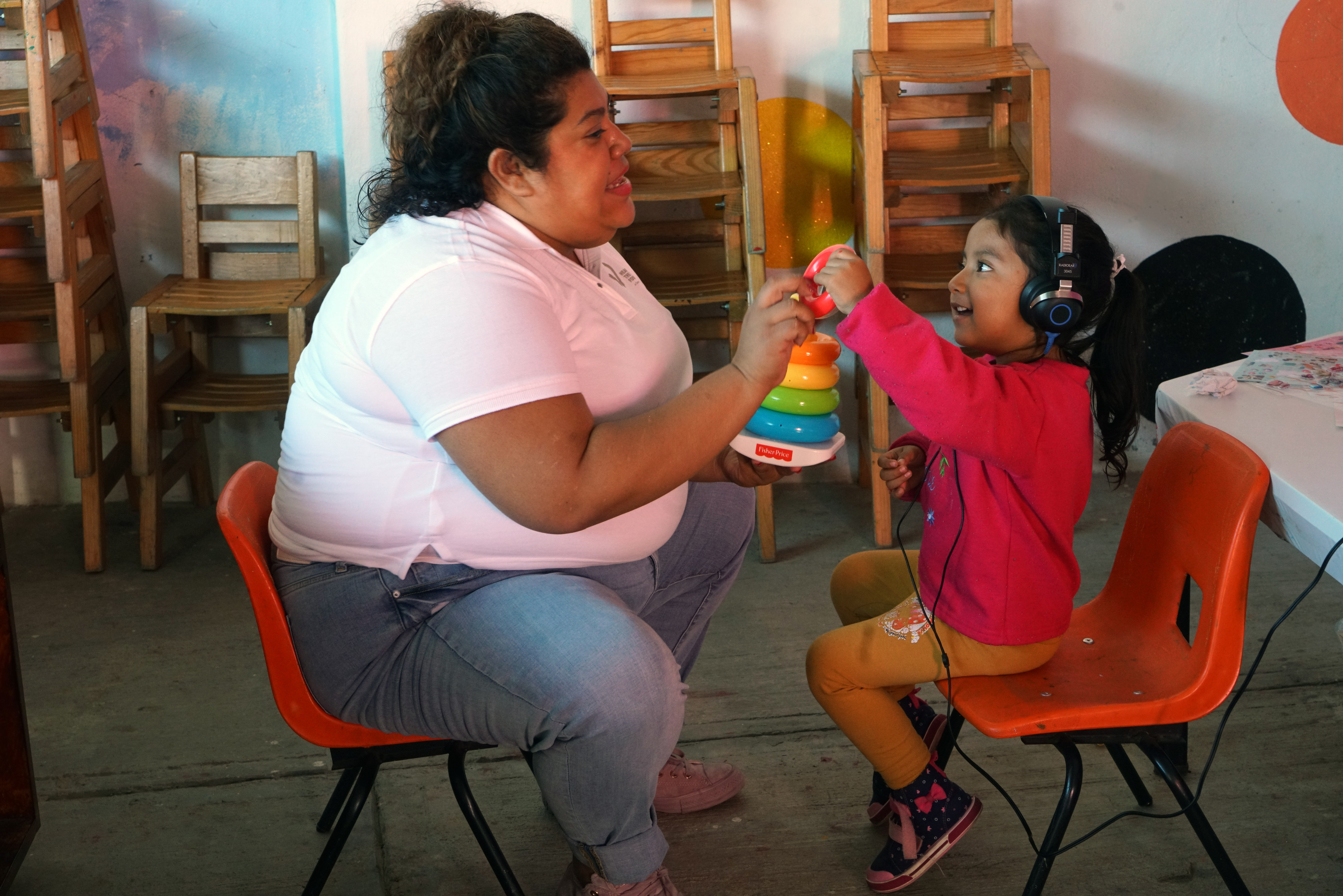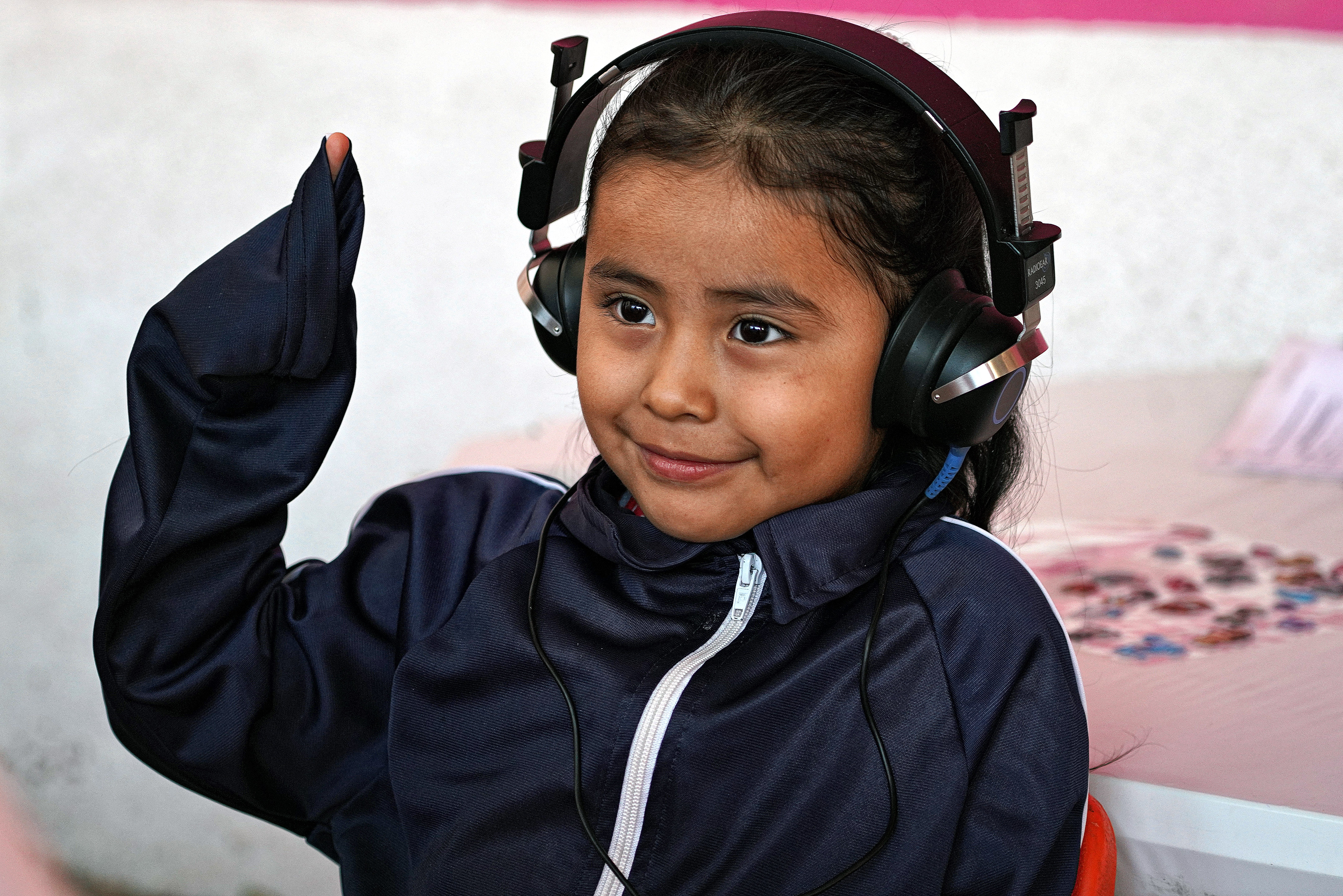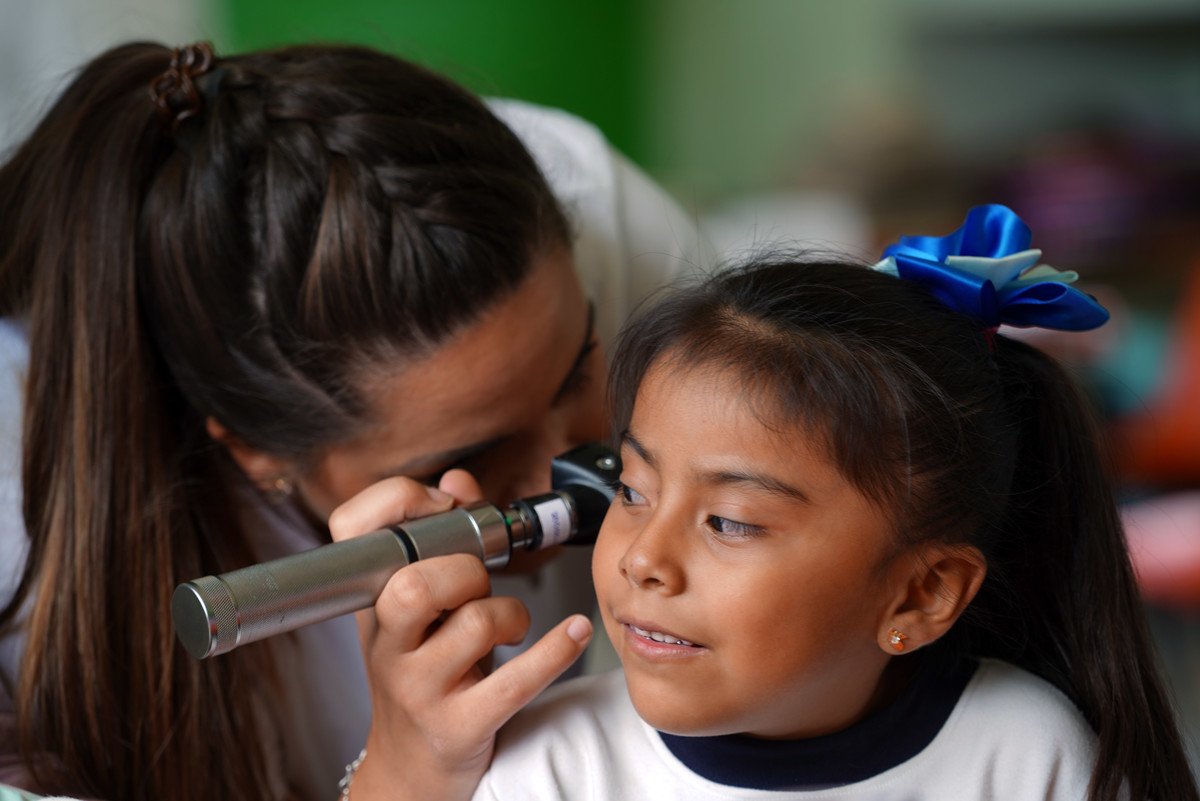#hearmexico
Audiology training creates sustainable support
Oaxaca in southwestern Mexico is the state with the largest indigenous population and also one of the poorest in the country. Due to a lack of audiological specialists, people with hearing loss have little chance of receiving hearing care and speech therapy. Therefore, with the support of the Hear the World Foundation, the local organization Centro Oaxaqueño de Rehabilitación de Audición y Lenguaje (CORAL) is expanding access to professional hearing care in the region.
Place & Year
Project Partners
Centro Oaxaqueño de Rehabilitación de Audición y Lenguaje (CORAL), ACSupport
Main Focus
The state of Oaxaca has a population of 3.51 million, many of whom live in rural areas. Medical care is particularly poor there and the same applies to audiological services. Children are particularly affected by this. Since there is no program to detect hearing loss, hearing loss in babies and toddlers often goes undetected and untreated – and the consequences are severe. Without hearing aids, these children do not learn to speak. They are denied access to education and have difficulty participating in social life. They remain outsiders.
This problem was recognized in 1999 by the American couple Rick Carroll and Nancy Press. With social worker Silvia Torres Zurita, they founded the CORAL. Their goal: to enable children with hearing loss in the Oaxaca region to develop their full potential and be integrated into society. This is only possible if they receive hearing aids and professional hearing care.
Since 2014, CORAL has received support from the Hear the World Foundation. This Swiss foundation trains local specialists at CORAL and donates financial resources, hearing solutions and audiological equipment to expand the range of hearing care. CORAL offers needy children and adults comprehensive audiological care including screening, hearing aid fitting and speech therapy. They can also participate in self-help groups, and affected mothers receive psychological support. In addition, various programs are in place to prevent hearing loss.

An important step towards sustainable hearing care: training local specialists
In order to expand and deepen the audiological knowledge of the local partners, Hear the World volunteers regularly conduct theoretical and practical training sessions. One example was a one-week training course on pediatric audiology in the fall of 2019. Five CORAL employees were brought up to date with current audiological science and learned, for example, how to measure otoacoustic emissions (OAEs) in babies and how to perform play audiometry for children under the age of six. They also practiced how hearing aids are fitted, programmed, maintained and cleaned, how to take earmold impressions and how minor repairs to hearing aids can be carried out themselves.

Getting out of town: hearing screenings for children in rural areas
CORAL’s goal is to discover and treat hearing loss in children at an early age and to provide speech therapy so that the children can learn to speak – and lead a normal life with hearing aids. The major focus at CORAL is to identify hearing loss in children outside the city of Oaxaca, where poverty is even greater and medical care is even worse. People from rural areas often lack the money to go to CORAL’s clinic and have a hearing test. With this in mind, CORAL has set itself the task of testing the hearing of thousands of babies and children up to the age of six in rural kindergartens. Children who are found to have hearing loss are referred to the CORAL clinic in Oaxaca for further audiological examinations. There they are treated by audiologists and, if the test result is confirmed, they receive hearing aids donated by the Hear the World Foundation. This gives them the tools to lead an independent life, just like their hearing friends.
In the fall of 2019, CORAL employees traveled to Tlalixtac de Carbrera and Villa de Zaachila with experts from the volunteer program. They tested the hearing of around 100 children in kindergartens and also examined the siblings of kindergarten children who do not attend an educational institution. Hearing loss was discovered in seven children. Often, chronic middle ear infections are the cause of hearing loss, which is often a consequence of poor medical care. You can find more information about the visit here.

Learning to speak: training for life
Children who have had poor hearing for a long time have difficulty speaking. However if the hearing aids are properly fitted, these children’s speech can be rehabilitated with speech therapy. Therefore, all children receive free speech therapy, in which both the affected children and their parents participate. Parents receive psychological support and learn techniques to help their children’s speech and hearing at home, so that they can make faster progress and enjoy speaking with each other.
New information options on our website and social media
In a country like Mexico, many people do not know what to do about hearing loss. In order to make the possibilities of care accessible on the Internet, the Hear the World Foundation supports the CORAL team in further developing an informative and appealing online presence. In collaboration with the CORAL team, two volunteers designed suitable concepts in the fall of 2019: The new website got a modern look, is now also available in English, is compatible with smartphones and tablets and is fully up to date. The Facebook page also received a modern design and eagerly awaits new visitors.


